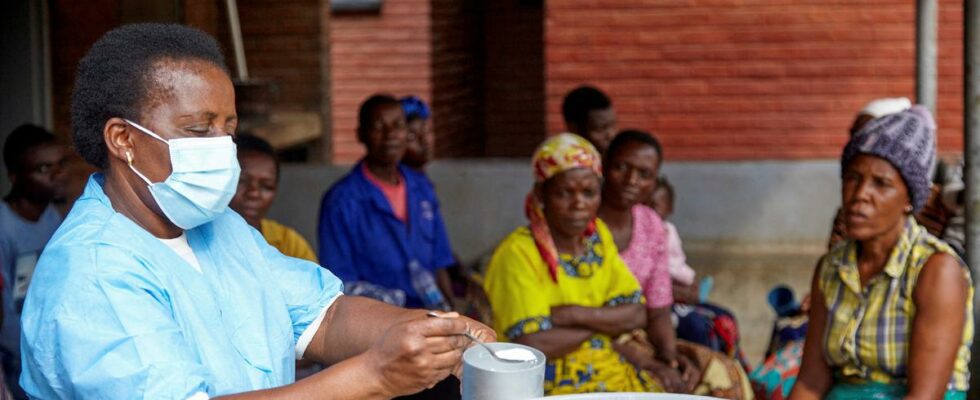Violett Motta, health surveillance assistant in Malawi, mixes chlorine with water to disinfect it at a health center in response to the latest cholera outbreak in Blantyre, Malawi on November 16, 2022. ELDSON CHAGARA / REUTERS
The ongoing cholera epidemic since March 2022 in Malawi has killed 1,210 people and nearly 36,950 cases have been reported, the WHO said Thursday, February 9, which is asking for “strong interventionsto avoid a deterioration of the situation.
Cholera has been endemic in Malawi since 1998, with outbreaks during the rainy season (November to May), but the current epidemic has spread to the dry season, according to the latest epidemiological bulletin from the World Health Organization. health.
Public health emergency
The outbreak was declared a public health emergency by the Malawian government on December 5. WHO is supporting authorities, including providing treatment kits and supporting increased testing capacity. But “with a sharp increase in cases seen over the past month, there are fears that the outbreak will continue to worsen without strong interventions“, indicates the WHO.
The organization judgesurgent need to improve access to drinking water, sanitation and hygiene“. One of the factors contributing to the high case fatality rate in Mangochi, Blantyre, Machinga and Lilongwe is the late detection of cases as patients present to health facilities too late, says WHO. The organization considers the risk of spreading the disease to be “very highat national and regional levels.
Read alsoCholera in Lebanon, symptom of a country in full collapse
This cholera epidemic is the deadliest ever recorded in this poor southern African country, which had experienced 968 deaths in 2001-2002, according to the WHO. Cholera is contracted by ingesting water or food contaminated with bacteria. It usually causes diarrhea and vomiting and can be very dangerous for young children. Nearly three million people have been vaccinated (oral vaccine) so far.
But part of the Malawian population refuses treatment in the name of religious beliefs, which contributes to the spread of the disease. The world is facing a resurgence of cholera, after years of decline, a disease favored by the effects of climate change. Currently, 23 countries are experiencing outbreaks, and another 20 countries sharing land borders with affected countries are at risk, according to the WHO.
This situation limits the availability of vaccines, tests and treatments. The disease threatens more than a billion people worldwide, WHO chief Tedros Adhanom Ghebreyesus said on Wednesday. The WHO assesses the risk of cholera globally as “very highdue to ongoing outbreaks in many regions.
SEE ALSO – Seven pandemics in two centuries: what the history of cholera teaches us
